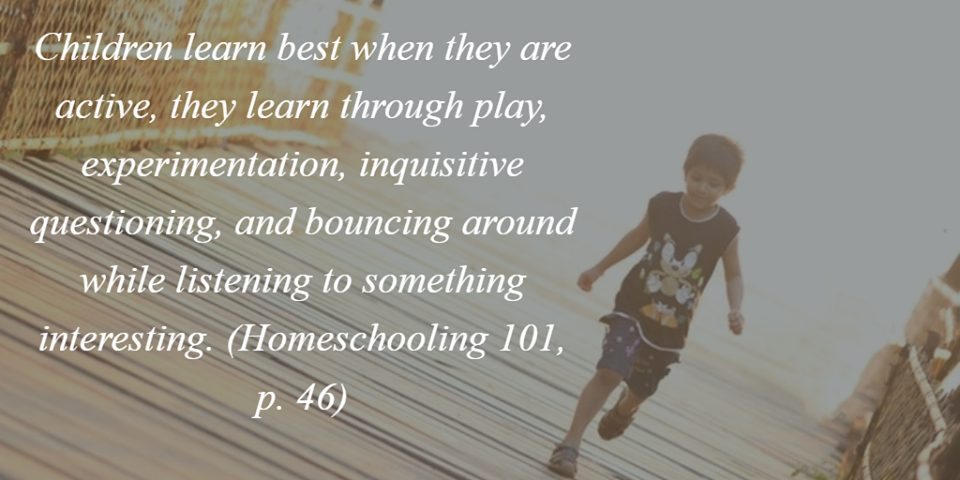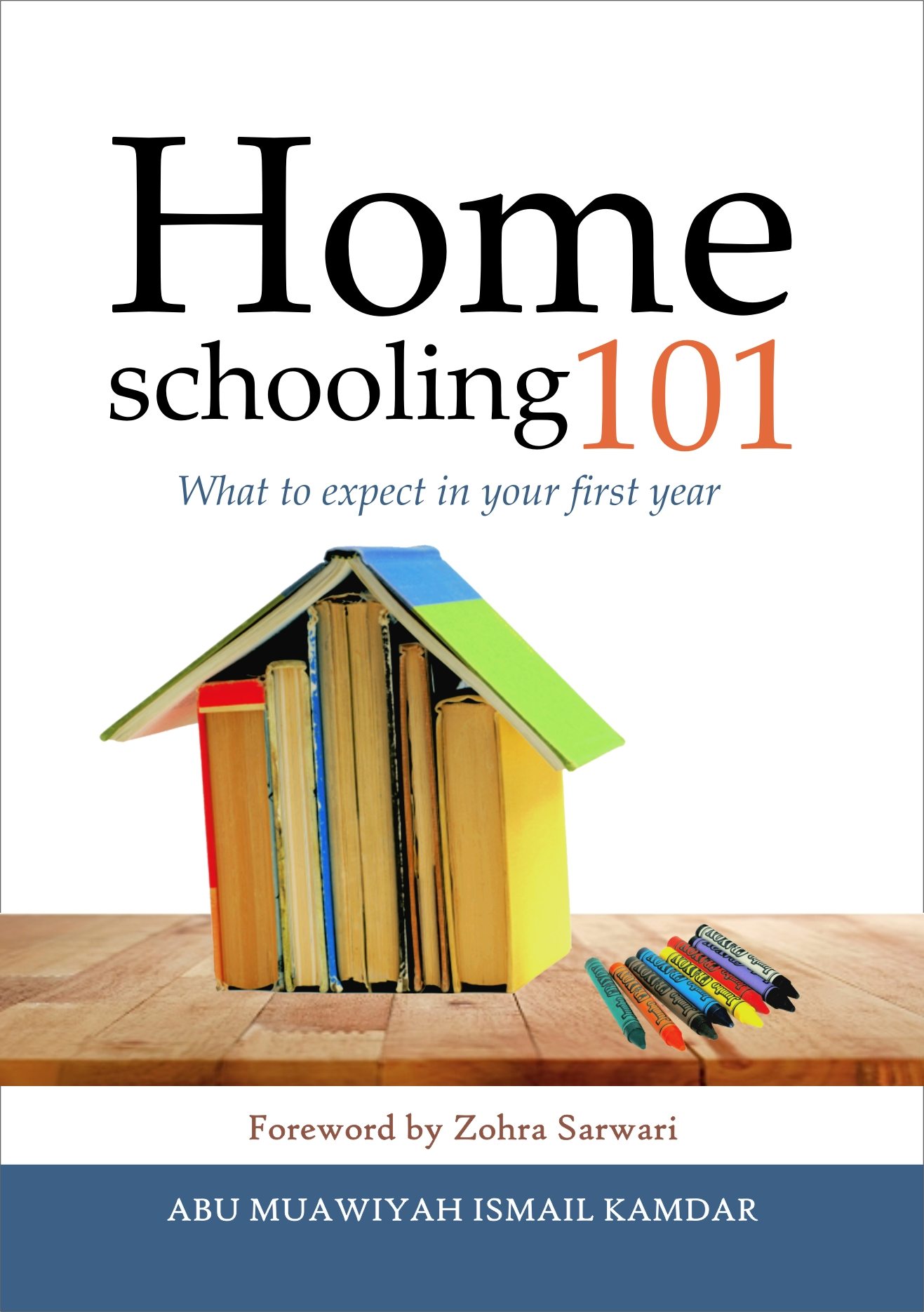
Homeschooling: Are You “Trending”?
Guest Post by Umm Warda
A decade ago, homeschooling was relatively unknown, at least in my area. On hearing that someone had decided to homeschool their children, the responses would typically range from confusion and incomprehension, to actual outrage that parents would “deprive” their children of a “real” education.
Today, homeschooling is a much more familiar phenomenon in many communities, with most people knowing someone who is going the homeschooling route. More and more books are being published on the topic, and there is a growing market for resources for homeschoolers. This is, no doubt, a good thing. However, like any other change in society, it needs to be set in the correct context.
Some time ago, I read a post by a sister who had been homeschooling her daughter. She was delighted at the fact that her 14 year old daughter had been accepted into college to study Art. The post raised several questions and doubts in my mind, especially the question of why we are homeschooling in the first place.
Following a Trend
Humans are, by nature, social creatures, and they tend to copy the behavior of their peers. When something starts becoming popular in a small group, you will soon see it rippling outwards and becoming popular among the larger community. It seems to be – and I may be wrong – that homeschooling is in the early stages of becoming such a trend.
While there is nothing wrong with spreading good and beneficial practices. In fact, it is recommended in Islam. We must be careful to adhere to the original goals of homeschooling and not simply get caught up in “what’s in”. As Muslims we should not be trend-followers. The Prophet (SAW) had said, “Do not let yourselves be ‘Yes-men’ (i.e. following whatever the people do)…”[1] We do specific things because they serve a specific purpose and have a beneficial outcome. So before we begin homeschooling, we should think about our intentions and make sure we are doing it for the right reasons.
What are the Right Reasons?
Homeschooling has become popular amongst both Muslim communities and non-Muslim ones, but for different reasons. Most non-Muslims like the fact that teaching only a few children means a better quality of education for each child. Which means getting into a good university (preferably at a younger age than their peers). Which in turn means getting a good job and a big salary. Basically, everything that they would define as success.
This “success”, however, is limited to this world. As Muslims we should be planning for the Aakhirah. Everything we do now should be done with the intention of it contributing to our Hereafter.
With this in mind, each parent needs to ask themselves: “What do I want to get out of homeschooling?” If it’s only so that your child can have a diverse range of learning experiences, or score the highest marks on the board exam, or be the youngest in his year at university; then I’m afraid you need to recheck your priorities.
Yes, as Muslims we should aim high, and try and be the best at everything we do. This includes “worldly” studies. But we must be clear about what takes precedence in our and our children’s lives.
Be Beneficial
The Prophet (SAW) said: “The best people are those most beneficial to [other] people.”[2]
Therefore, we should encourage our children to go into the areas that are most needed in our communities. Look around for areas in which there are too few Muslims – Midwives? Counsellors? Fitness instructors for women?
If you have children whose characters may be suited to those fields, encourage them to go in that direction. At the same time give them a strong Islamic foundation. There is little difference between a secular Muslim doctor and a non-Muslim one.
Furthermore, you can guide your children’s education in such a way that whatever he chooses to become, it can still contribute to his Aakhirah. Does your son have head for business? Instil in him a love for sadaqah, and the virtues of sponsoring the scholars and Imams.
Every characteristic that your child has should be moulded and shaped so that it can be beneficial to the Ummah, and not just so that he does what he enjoys for the sake of enjoyment. Our children are seeds that have been given to us. We need to water and nurture them so that they can reach their full potential and help uplift this Ummah. Not waste their time in careers that are, let’s be honest, pointless.
Finding Balance
Of course there is room for hobbies in relaxation time, but they should not become the focus. There is a big difference between playing soccer once a week with friends, and becoming a professional soccer player!
Therefore each parent needs to ask themselves the following questions:
“What do I truly want for my child(ren)?” and,
“What will best serve that goal?”
If we answer these two questions completely honestly, we will have a clearer picture of why we are homeschooling, and what we want our children to get out of it.
Allah (SWT) says in the Quraan: “…but of mankind there are some who say, ‘Our Lord! Give us (Your Bounties) in this world!’ and for them there will be no portion in the Hereafter. And of them are some who say, ‘Our Lord! Give us in this world that which is good, and in the Hereafter that which is good, and save us from the torment of the Fire!’ For them there will be allotted a share of what they have earned, and Allah is Swift at Reckoning.” [Suratul Baqarah 2:200-202][3]
May Allah help us to make homeschooling a means of us being in the second category and not the first, Aameen.
References
[1] Jami’ at-Tirmdhi, Vol.4, no.2007 – Hasan
[2] As-Silsilah As-Saheehah, no.426 – Hasan
[3] Sahih International Translation
Umm Warda is wife, mother, and student of knowledge. She is currently in the 4th semester of IOU’s BAIS program and intends to seek knowledge until her last breath. Umm Warda grew up in a family of writers and thus had an appreciation for the written word instilled in her from a young age. She hopes that Allah makes her writings a source of guidance for others.
Learn more about homeschooling with our exclusive eBook
Buy Now




